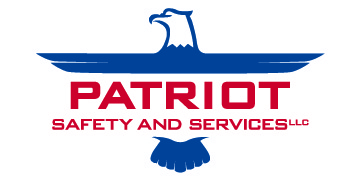In today’s workplace, hiring the wrong person can carry major consequences—ranging from safety risks to reputational damage and legal liability. That’s why background checks have become a standard part of the hiring process for employers across nearly every industry.
But not all background checks are created equal. The type of check you conduct, when you conduct it, and how you use the results can have a significant impact on your organization’s ability to build a safe, trustworthy, and legally compliant workforce.
In this blog, we’ll break down the key types of background checks, how to time them effectively in your hiring process, and best practices for using them responsibly and efficiently.
Why Background Checks Matter
Background checks help employers verify critical information about job candidates before extending an offer or finalizing employment. More than just a formality, background checks offer insight into a person’s criminal history, identity, employment record, and qualifications.
For industries with safety-sensitive positions—like transportation, construction, healthcare, and logistics—background checks are often a legal or contractual requirement. But even for office-based roles, they provide a valuable layer of protection against fraud, theft, or workplace misconduct.
A consistent background checks policy also promotes fairness in the hiring process. When every candidate is subject to the same screening procedures, employers create a level playing field while minimizing bias and risk.
Types of Background Checks Employers Should Consider
There are several different types of background checks that can be used based on the position being filled, the industry, and applicable regulations.
- Criminal History Checks
This is one of the most common forms of background checks and reveals whether the candidate has a criminal record at the county, state, or federal level. Employers often use this to identify convictions related to violence, theft, or drug use.
- Employment Verification
Confirms the accuracy of a candidate’s work history, including dates of employment, job titles, and reasons for leaving. This type of check helps validate the candidate’s qualifications and experience.
- Education Verification
Ensures that the candidate actually holds the degrees or certifications they claim. This is especially important in industries that require formal credentials or licenses.
- Motor Vehicle Records (MVR)
Essential for roles involving driving, MVR background checks look at license status, driving history, DUI charges, and traffic violations.
- Drug Testing Records
For DOT-regulated employers or any business with a drug-free workplace policy, reviewing prior drug testing records and compliance histories is critical.
- Credit Checks
Primarily used for roles involving financial responsibility or sensitive data, credit background checks can reveal patterns of risk that could be relevant in the workplace.
- Sex Offender Registry Checks
Often required in education, healthcare, and childcare roles, this ensures that no individuals on a sex offender registry are hired into vulnerable environments.
Employers should determine which background checks are appropriate for each role and apply them consistently across similar positions.
When to Conduct Background Checks During the Hiring Process
Timing is crucial. Conducting background checks too early may violate state or local “ban-the-box” laws, while waiting too long can delay hiring or introduce compliance issues.
Recommended Timing:
Post-offer, pre-employment: This is the most common and safest time to run background checks, especially if the offer is contingent upon successful screening.
For DOT-regulated roles: Certain checks, including drug and alcohol testing history, must be reviewed before the employee performs safety-sensitive duties.
Before onboarding begins: Finalizing all background checks before day one ensures compliance and reduces the chance of having to terminate a new hire after training has started.
Make sure to notify the candidate in writing and obtain signed consent before conducting any background checks, as required by the Fair Credit Reporting Act (FCRA).
Best Practices for Managing Background Checks
To get the most out of your background checks program while remaining compliant, employers should follow these best practices:
- Create a Written Policy
Outline what types of background checks are required for each role, when they’re performed, and how results are evaluated. This protects your company from claims of bias or inconsistency.
- Partner with a Reliable Screening Provider
Work with a certified, reputable provider like Patriot Safety and Services that understands federal, state, and industry-specific requirements. A quality provider ensures fast turnaround, accuracy, and confidentiality.
- Evaluate Results with Context
Not all criminal records are disqualifying. Review background checks within the context of the job’s duties, the time since the offense, and any evidence of rehabilitation. Be cautious of overly strict criteria that could violate equal employment laws.
- Keep Records Secure and Accessible
Maintain digital records of consent forms, results, and decisions made based on background checks. These records may be needed in the event of an audit or legal dispute.
- Follow Adverse Action Protocols
If a candidate is rejected due to findings in their background checks, the FCRA requires a specific process, including a pre-adverse action notice, a copy of the report, and time for the candidate to respond.
The Role of Background Checks in Long-Term Workforce Planning
Background checks don’t just protect employers at the hiring stage—they also support long-term workforce development. Consistent screening helps ensure a safe workplace culture, reduces liability, and fosters trust among employees and clients.
In some industries, ongoing or annual background checks are recommended to monitor high-risk roles. This helps ensure ongoing compliance and reinforces a zero-tolerance policy for violations that could endanger the business or its people.
Background Checks Made Easy with Patriot Safety and Services
At Patriot Safety and Services, we provide fast, compliant, and accurate background checks tailored to your organization’s needs. Our team helps businesses streamline the screening process and build a more secure workforce from day one.
Our Services Include:
- Criminal, employment, and education verification
- DOT-compliant drug and alcohol screening history
- MVR checks for commercial drivers
- Sex offender registry screening
- Pre-employment and recurring background review programs
- Secure digital reporting and compliance support
Whether you’re a small business or a large enterprise, we make background checks easy, effective, and fully aligned with your compliance requirements.
Final Thoughts
Hiring the right person starts with having the right information. Background checks give employers the tools they need to make informed, confident decisions—protecting people, operations, and reputation in the process.
By choosing the right types of background checks, timing them strategically, and following best practices, your business can create a strong foundation for safe, compliant hiring. And with the support of Patriot Safety and Services, you can trust that every screening is handled with care, speed, and precision.






